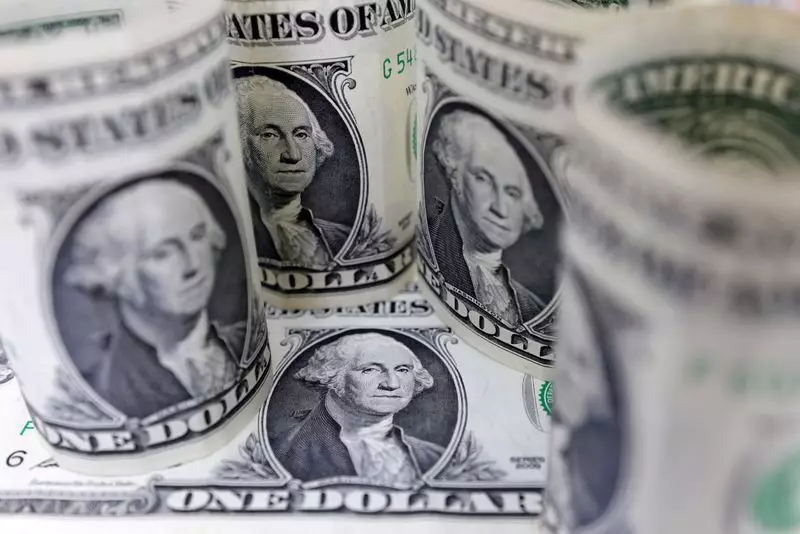As the U.S. presidential election approached, investors found themselves in a cautious position, destabilizing the dollar as they reassessed the outcomes based on recent polling data. The sentiment was palpable on Tuesday morning as markets reacted to shifts in electoral expectations. Republican candidate Donald Trump, previously seen as a shoo-in by several financial platforms, faced unexpected challenges from Democrat Kamala Harris, whose odds appeared to be improving in the unpredictable landscape of electoral betting markets. This political uncertainty is reflected in the market’s volatility, with investors weighing the potential impacts on economic policy and currency values.
Recent opinion polls have shown surprising momentum for Harris, including a notable lead in Iowa—a state typically favorable to Republicans. Such shifts in poll standings can lead to significant changes in trading strategies as market participants react to perceived probabilities of each candidate’s victory. A notable 0.76% dip in the dollar against the euro highlighted concerns surrounding a Harris victory, leading to discussions about currency valuations amidst the electoral tension. Despite the tight race predictions, analysts opine that financial markets are beginning to tilt towards the prospect of a Harris administration, suggesting that the dollar could suffer mild losses if the Democratic candidate succeeds.
The dollar index, a key measure against six other major currencies, was relatively stable at 103.91 early Tuesday, reflecting lingering uncertainty after a prior drop to lows not seen since late October. The euro’s encounter with 1.0877 dollars marked only slight fluctuations, reinforcing the notion that the market remained in a state of flux influenced heavily by political developments. The dollar’s decline against currencies like the yen, which recorded a low around 151.54, further emphasized the shaky ground on which the dollar stood amidst changing electoral dynamics.
Financial strategists from Commonwealth Bank of Australia indicated that the implications of a Harris win might lead to a modest 1% to 2% drop in the dollar’s value. Conversely, a Trump victory could materially elevate the dollar, showcasing the stark differences in market anticipations tied to each candidate’s policy framework. Traders are also wary of potential delays or disputes in vote counting, which could exacerbate currency volatility, thus emphasizing the unpredictable nature of the electoral results.
Simultaneously, the cryptocurrency market exhibited its own reactions amid the electoral fervor. Bitcoin’s increase of 1.6% to around $68,140 post a brief dip featured its ongoing flight from uncertainty. Analysts have suggested that Trump’s policies might be viewed as more favorable for cryptocurrencies compared to the more traditional fiscal approach that Harris might enforce. This conditional optimism around digital currencies hints at a broader shift in market sentiment, potentially affected by the election’s outcomes.
Looking ahead, all eyes will be on the Federal Reserve’s meeting imminent on Thursday, wherein a consensus for a 25 basis points rate cut is anticipated. Market behaviors will certainly hinge on any forward guidance issued by the central bank, particularly in light of the disheartening job reports from October. With employment figures falling short of analysts’ expectations, apprehensions about the economy’s resilience remain prevalent, which adds another layer of complexity to market predictions and currency dynamics.
The ripple effects of the U.S. election are not confined to the domestic landscape; other central banks, including the Bank of England and the Riksbank, are also expected to make adjustments to their monetary policies shortly after the election. These decisions will influence currency valuations globally, with the Australian dollar demonstrating stability against the dollar but remaining weak compared to historical data points.
The upcoming U.S. presidential election serves as a critical turning point not only for American policy but also for global financial markets. Currency traders are caught in a web of uncertainties characterized by fluctuating electoral betting odds, volatile currency pairs, and broader economic implications that will unfold in the weeks following the election. The need for patience and caution in trading strategies has never been more paramount.

